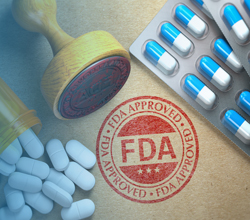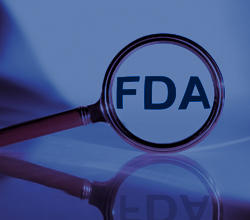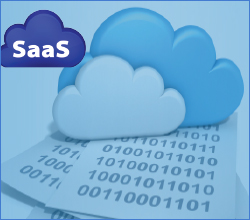
Mapping a Pharmaceutical Ingredient Bulk Manufacturing Workflow
 Michael Esposito
Michael Esposito
 90 Mins
90 Mins
Product Id: 707020
Mapping and evaluating all the steps in a current pharmaceutical ingredient bulk manufacturing workflow can lead to valuable process improvements. In this webinar, we discuss how this review can be accomplished and the possible benefits that can result.

Managing Microbiological Out of Specification (OOS) and Out of Trend (OOT) Results in Sterile and Non-Sterile Production FDA & ICH Expectations and Guidance
 Barry A Friedman
Barry A Friedman
 90 Mins
90 Mins
Product Id: 706884
The objective of this interactive, live training webinar is to explore the management of OOS practices and suggested avenues to take to minimize deviations, OOT, OOS and CAPA and how to attack these situations should they occur. It is also designed to determine how FDA and ICH regulations and guidances may impact them. It will also reference the new PDA TR 88, “Microbial Data Deviation Investigations in the Pharmaceutical Industry”.

Design Control / Ddesign and Development Requirements / Documents Under 21 CFR 820/ ISO 13485 7.3
 John E Lincoln
John E Lincoln
 90 Mins
90 Mins
Product Id: 706923
Proper adherence and documentation of the FDA's Design Control requirements are key to any medical product project's success.

SAFE Act: What you need to know to become an MLO (mortgage loan originator)
 Justin Muscolino
Justin Muscolino
 60 Min
60 Min
Product Id: 706926
The Secure and Fair Enforcement for Mortgage Licensing Act of 2008 (SAFE Act) was enacted on July 30, 2008, and mandates a nationwide licensing and registration system for residential mortgage loan originators (MLOs). The SAFE Act prohibits individuals from engaging in the business of a residential mortgage loan originator without first obtaining and maintaining annually.
This webinar will go through the purpose, process and application of the SAFE Act, registrations, enforcement and so much more. The SAFE Act is an important act you don’t want to miss!

AI, ML & FDA Compliance for Computer Systems & Data
 Carolyn Troiano
Carolyn Troiano
 90 Mins
90 Mins
Product Id: 707021
During the webinar, we will discuss FDA’s considerations for adapting its review process for AI-enabled medical devices that have the ability to evolve rapidly in response to new data, sometimes in ways difficult to foresee. You’ll also learn about current and potential uses of AI in health care and the challenges posed. We’ll cover how and under what circumstances products relying on AI are regulated by FDA, and how to ensure benefits of products outweigh risks.

Designing and Implementing an Effective Quality Management System (QMS)
 Joy McElroy
Joy McElroy
 90 Mins
90 Mins
Product Id: 707022
Implementing a Quality Management System (QMS) involves a structured process to ensure consistent quality across an organization's operations. It typically starts with understanding the organization's context, defining policies and objectives, mapping key processes, and then implementing, monitoring, and continuously improving the system. The implementation process can vary based on the organization's size and complexity, but generally takes 3-18 months depending on an organization’s size.

Useful Statistical Methods for Defining Product and Process Specifications - Part I
 Steven Wachs
Steven Wachs
 75 Mins
75 Mins
Product Id: 706897
This webinar covers useful and important statistical methods that assist scientists and engineers in the development of appropriate product and process specifications. Appropriate product specifications are critical to achieving adequate and reliable product performance.

The 6 Most Common Problems in FDA Software Validation and Verification
 David Nettleton
David Nettleton
 120 Mins
120 Mins
Product Id: 705582
This training on FDA software validation and verification will provide you the best practices necessary to ensure that all systems are validated in compliance with FDA regulations.

US FDA's AI Framework for Medical Devices
 John E Lincoln
John E Lincoln
 90 Mins
90 Mins
Product Id: 706934
The ability of artificial intelligence / machine learning software to learn from real-world feedback and improve its performance is spurring innovation and leading to the development of novel medical devices. The FDA recognizes AI's advantages and dangers and has started to outline its expectations of industry and device design, programming, unique validation issues, documentation and submissions.

Zero-Injury Workplace Culture vs. Safety Culture
 Joe Keenan
Joe Keenan
 60 Min
60 Min
Product Id: 704986
Creating a safety culture in the workplace takes time, patience, and is often a multi-year process. This training program will examine how organizations need to transition from the existing zero injury workplace culture to a more safety oriented culture. In the process, it will examine the pros and cons behind each process and also offer best practices to determine whether you are doing it right.

Mapping and Review of Pharmaceutical Manufacturing and Packaging Workflows
 Michael Esposito
Michael Esposito
 90 Mins
90 Mins
Product Id: 707023
Mapping and evaluating all the steps in a pharmaceutical manufacturing and packaging workflow can lead to valuable process improvements. In this webinar, we discuss how this review can be accomplished and the possible benefits that can result.

Elements of an Effective Change Control System
 Michael Ferrante
Michael Ferrante
 60 Mins
60 Mins
Product Id: 703345
This webinar will focus on the regulatory and design requirements for an effective change control system in the pharmaceutical industry. Attendees will learn the role and importance of change control system in implementing an effective quality system.

Calculations for Process and Product Capability
 Elaine Eisenbeisz
Elaine Eisenbeisz
 120 Mins
120 Mins
Product Id: 706629
Attendees of this webinar will learn specific concepts and formulas commonly used to measure the ability of a process to produce output within customers’ specification limits. The focus of this webinar is on providing the information needed for attendees to know the appropriate measures and formulas to use for the various types of process data (attribute or variable).

Useful Statistical Methods for Defining Product and Process Specifications - Part II
 Steven Wachs
Steven Wachs
 75 Mins
75 Mins
Product Id: 706898
This webinar covers useful and important statistical methods that assist scientists and engineers in the development of appropriate product and process specifications. Appropriate product specifications are critical to achieving adequate and reliable product performance.

Commissioning and Qualification Training Course
 Kelly Thomas
Kelly Thomas
 60 Mins
60 Mins
Product Id: 706911
This online program offers an introduction to the international principles and regulations behind commissioning and installation qualification (IQ).

Business Process Mapping (BPM) – Streamlining Management of Data/Records for Clinical Trial from Variety of Stakeholders/Systems
 Carolyn Troiano
Carolyn Troiano
 90 Mins
90 Mins
Product Id: 707024
Companies engaged in the conduct of human clinical trials must adhere to specific government regulatory requirements. Certain documents, content and images related to a clinical trial must be stored and maintained, and depending on the regulatory jurisdiction, this body of information may be stored in a trial master file (TMF) or electronic trial master file (eTMF).

GDPR: How to protect your organization
 Justin Muscolino
Justin Muscolino
 60 Min
60 Min
Product Id: 706919
Data protection and privacy is an important issue this day and age for the public. People want to make sure they are protected. With the rules & regulations for organizations becoming stricter as we move forward, this will help confidence with the public. GDPR will provide people with more control over their privacy and personal data. It’s essential to understand the various aspects and conditions, as well as the implications of wrongdoing for organizations. This webinar will focus on the core basics and then we will have a thorough discussion on protecting your institution.

Excel Spreadsheets; Ensuring Data Integrity and 21 CFR Part 11 Compliance
 David Nettleton
David Nettleton
 75 min
75 min
Product Id: 701582
Learn how to use Microsoft Excel spreadsheets for GXP data to ensure compliance with 21 CFR Part 11 and reduce validation cost and time.

How to Achieve Validation Requirements for a Clean Room Manufacturing Environment
 John E Lincoln
John E Lincoln
 90 Mins
90 Mins
Product Id: 706947
Both the U.S. FDA and EU's MDR expect documented risk-based clean room manufacturing environment per ISO 14644-series, ISO 14698-series (and the old FED-STD 209E).

NEW Nacha Operating Rules Changes for 2024, 2025 & 2026 PLUS Ops Bulletin #1-2025
 Donna K Olheiser
Donna K Olheiser
 90 Mins
90 Mins
Product Id: 707025
Effective Oct 1, 2024 – Amendments to the Rules included Risk Management Topics, such as "Expanded use of Return Reason Code R17"; "funds availability exceptions" and "Unauthorized Return changes for the RDFI with timing of the WSUD and returning unauthorized transactions".
Effective April 1, 2025 – An Amendment carried over from 2024 includes the "Expanded use of Return Reason Code R06"
Effective March 20, 2026, two Rule amendments (Fraud Monitoring – Phase 1) – monitoring for Faud (as part of a larger Risk Management package) intended to reduce the incidence of successful fraud attempts and improve the recovery of funds after frauds have occurred.
Plus, two additional Rule amendments on standardizing Company Entry Descriptions (also part of Risk Management-relating to Fraud) become effective on March 20, 2026.


























